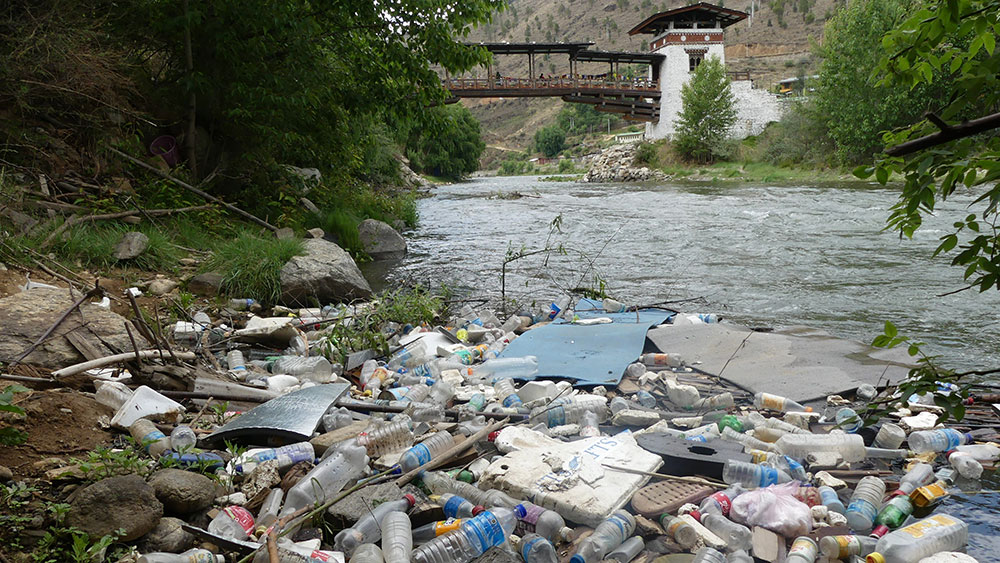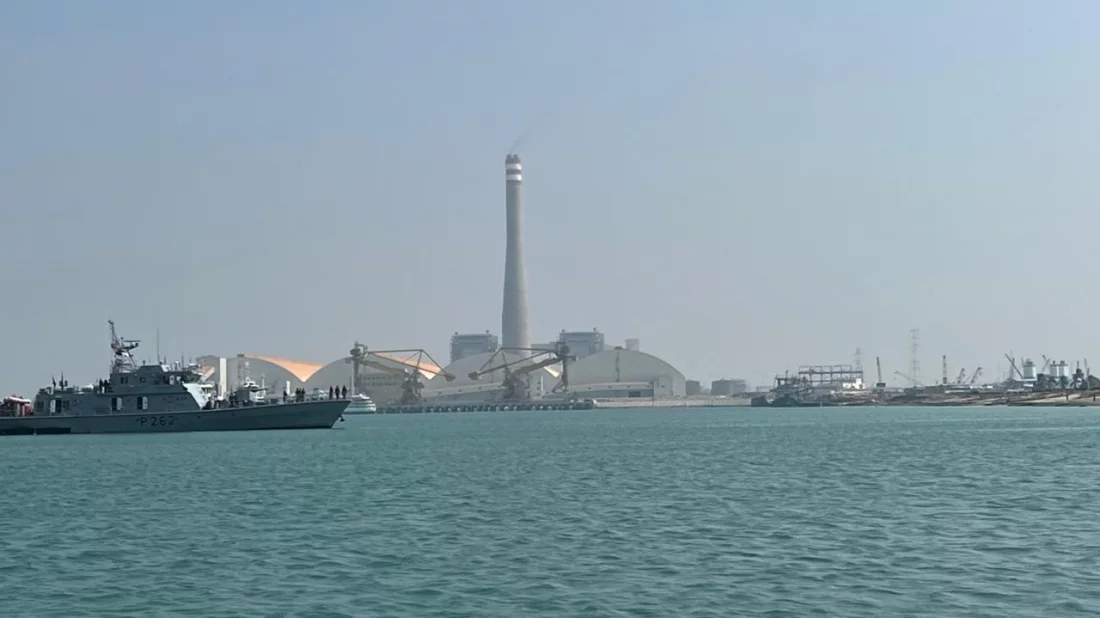
…Greener Way’s latest initiative to solve waste issue
There is cash in the trash! So have we heard this multiple times. However, if there is not much cash, this initiative of making money from trash could ease the burden of the mounting trash issue.
Greener Way recently started a Waste Bank where anyone can deposit their trash and walk away with cash. The World Bank is supporting the “Bhutan Waste Bank” launched on April 18 with USD 1.5 million.
The concept is simple. Anybody can drop their solid waste at the nearest drop-off centres and get credited for the trash. It is Nu 25 per kilogram for polyethylene terephthalate (PET) bottles and Nu 20 per for low-density plastics (LDPS), and all other wastes.
According to officials from Greener Way, there are three major activities under the project: waste circular economy which is the waste collection phase, eco-poles production and pet-shredding.
“This initiative will provide incentives to the people, bring out behavioural change, foster socio-economic empowerment which is gender inclusive and increase household level engagement,” the official said.
Greener Way established in 2010 initiated material recovery facility in 2018—following which started producing eco-poles in 2019 and delineators from 2023.
Bhutan is one of the fastest urbanising countries in south asia. By 2047, the share of Bhutan’s urbanisation is projected to reach 56.8 percent. The project has the potential to divert approximately 422 tonnes of plastic waste from entering the landfill. This diversion is expected to help eliminate around 1,266 tonnes of CO2 emissions annually.
This initiative is made possible through the Plastic Free Rivers and Seas for South Asia grant.
The implementation will be overseen by the South Asia Cooperative Environment Programme, with support from the United Nations Office for Project Services.
Meanwhile, in Thimphu the amount of waste disposed of at the landfill increased by approximately 4,800 metric tonnes in 2021 compared with 2019. In 2019, about 14,824.8 metric tonnes of waste were disposed of with 13 percent being plastic waste.
A household generates over 80 tonnes of solid waste per day, of which 51 percent is generated in urban areas.
The government’s Zero Waste Bhutan app functions as a tracker for waste-related offenses. So far, it has recorded 436 offenses and 369 incidents of waste-related issues.
Looking ahead
The recent World Bank report titled “Bhutan Country Environmental Analysis: Taking the Green Growth Agenda Forward” highlights a significant issue. Bhutan does not have adequate waste disposal solutions, such as proper sanitary landfill infrastructure or facilities to convert waste into energy.
The 13th Plan stresses on meeting the long-term goal of reducing waste going to the landfill and recovering waste promoting recycling value-chain. “Promotion of circular economy—development of integrated waste management estates shall be focussed.”
The waste flagship programme started with the national waste inventory survey in 2019, that paved a way forward other programmes such as website for zero waste Bhutan, integration of ecology notes in school education, procurement of incinerators, and biogas facility at Memelakha among other outcomes.
According to the National Statistics Bureau’s 2020 survey, plastic and paper waste comprise 17.1 and 15.8 percent respectively in Bhutan.
In Bhutan, the ban on plastics that was imposed in 1999 remains largely ineffective. The National Environment Commission on January 14, 2019, issued a notification reinforcing the plastic ban. It is ineffective too.











